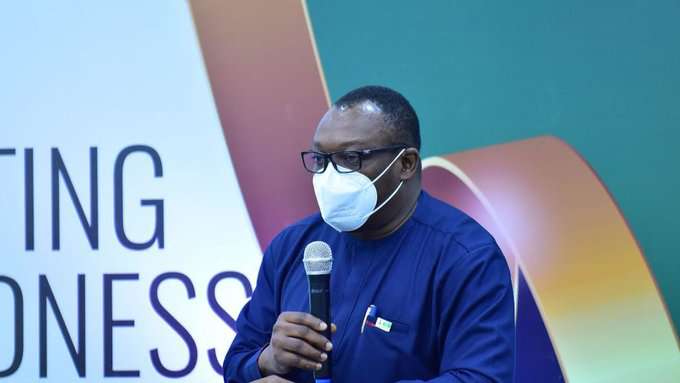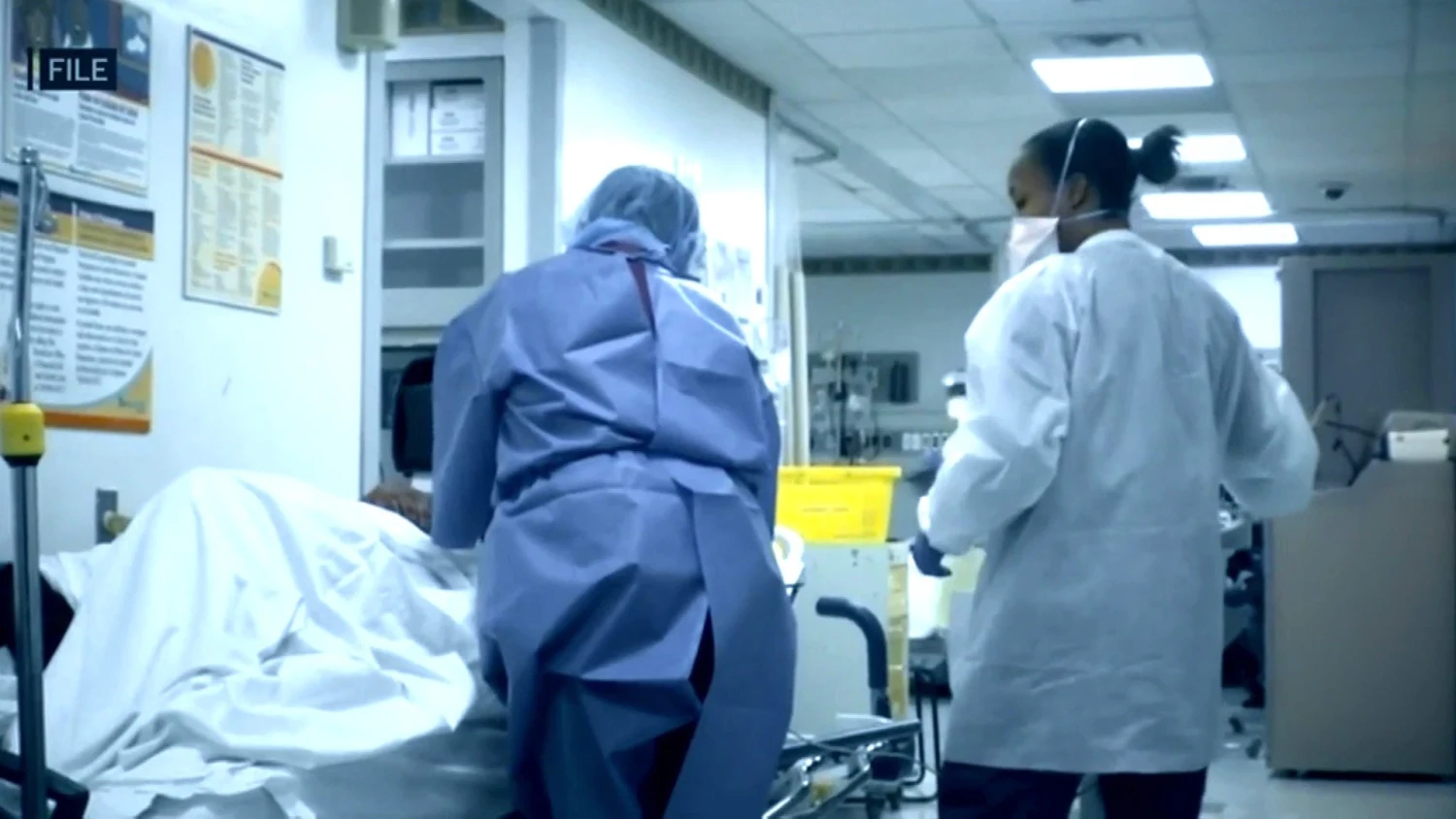Headlines
Coronavirus: Kano poses fresh threat of spread

BY OLUSESAN LAOYE
Developments from Kano state, the largest city in the north, point to a major threat to the country in the fight against the global pandemic. Although Lagos has remained the national epicentre of the virus there are indications that the big threat and challenge will come from Kano.
The World Health Organisation warns that Africa, and particularly Nigeria, maybe he next epicentre of the pandemic, because of the low test level, lack of structures to enforce lockdowns, and disregard for social and physical distancing protocols; and projects that the patient population may rise to eight million by the end of the year.
With a population of estimated at15 million people, most of who are illiterate and destitute, Kano has always presented a challenge in the fight. Reports of mass deaths in the state last month raised the red flag, but the indifference of the state government led to what has become a national threat, demanding the intervention of the federal government.
Unlike the Lagos government which took charge of the situation with the first index case, Kano governor, Abdullahi Ganduje, was only interested in the federal subvention, which Lagos had earlier based on its interventions by asking for N15 billion before responding to the crisis. By such delay in response, Kano has become the supplier of the virus to the rest of the country.
Kano has always played a critical political and socio-economic role in the country especially in areas of elections and census. The state has proved in the last few elections that it holds the ace in deciding national leadership. It is also the religious centre of the north where there are more mosques than a school; and also has the largest population of destitute, almajiris, in the entire country. It is also the industrial and commercial hub of the region.
The city also boasts of some of the most influential politicians and national leaders right from the days of the known leader of the Talakawas, late Alhaji Aminu Kano, Maitama Sule, Abubakar Rimi and the new generation of leaders, like Alhaji Rabiu Kwankwanso and notable business people such as Alhaji Aminu Dantata, Isaku Rabiu and now Alhaji Aliko Dangote, Africa’s richest man. Kano has also produced two heads of state, namely Gens. Murtala Mohammed and Sani Abacha.
Kano has also played important role in the economic development of the country, particularly in the north as the centre of the famous groundnut pyramid which put Nigeria on the world map as the largest producer of the commodity. It also has the highest number of local government areas of 44 and the highest number of representatives at the national assembly.
Kano was also the first place of a major religious uprising in the country in 1980, Maitasine Islamic sect. Since then, the State, despite its social status has witnessed many religious and ethnic crises, which today, have made it the most troublesome and volatile state in the whole of Nigeria.
Before now, the state which has ceased from controversies was alive with the attitude of the present Governor Alhaji Abdullahi Umar Ganduje, over corruption allegations and altercations with the traditional rulers, leading to the balkanization of the Kano emirate into four division, each with an emir, and eventually the deposition of Emir Sanusi.
Gandjue had before the last elections exposed in video footage of collecting wads of dollars from a contractor and pocketing same.
But with the emergence of COVID-19, again Kano was to take the centre stage with the report of unexplained mass deaths, which the government denied had nothing to do with the virus.
Although the report by a team of experts investigating the issue is not yet out, the preliminary finding indicates that the virus had played a role in the deaths.
While it was being speculated that it was COVID-19, Kano government and officials had different reasons and they alleged the cause to be pneumonia because the deaths recorded were rampant amongst the elderly people. Before they knew what was happening, the whole state was on fire and this forced the government to come to terms with the reality that the problem they had was COVID-19 pandemic.
Nigerians were not sympathetic with Kano people, because the government mismanaged the situation; however, the fact is that at the time when virtually all the states in Nigeria were adopting measures to curtail the pandemic, Kano was reluctant. Even, her citizens were debunking that there was coronavirus and religious meetings and social gatherings were going on. They went on the streets to protest lockdown.
Some of them were even washed their hands in bowls of water and drank it, mocking other states of being afraid of death as a result of the virus and that as far as they were concerned the virus can’t kill them. At the end of the day, the whole thing boomeranged and Governor Ganduje and his team had to succumb to the reality of COVID-19 with hundreds of deaths being recorded on daily basis; Kano became the second hot spot for coronavirus.
This created fear in the citizens and even among their brother states, which felt that if adequate measures were not taken, the problem in Kano would extend to them because it was getting to a stage that the pandemic would soon spread to the entire north because of the huge numbers of the almajiris being affected in Kano. And it soon did.
This made the Northern governors initiate a common agenda that the almajiris be repatriated to their states of origin. Although it was the Kaduna State Governor, Mallam Nazir El- Rufai that mooted the idea because of his hatred for the Almajiri system, which his friend the deposed Emir Sanusi advocated its abolition others saw reasons in his arguments given the problems they too had been facing to curtail crimes which the almajiris have been used to perpetrate.
However, the northern governor did not stop at repatriating the almajiris to home states, they are now being shipped to other parts of the southern states in food and cattle trucks, which raising fears of a wider spread of the virus as the regions grapple with measures to curb it such as lockdowns.
Former Ambassador to the Philippians, Dr Yemi Farounbi in an interview said that the present mass movements of the almajiris to the Southern parts of Nigeria should not be seen by the governors as only for economic reasons or poverty, but has other motives. He believed that those who are sponsoring them wanted to initiate a jihad so that by the time they start, the South would be overwhelmed by their population. This, according to him will be too late. He then cautioned the Southern governors not to allow them in any part of the regions.
As the repatriation still goes on in all parts of the North, some of them still believed there is room for them in the south, while Kano, which is one of the most affected by COVID-19 in the North and entire Nigeria, is still battling with the problem.
To curtail the pandemic, the government has extended the lockdown for another four weeks.
Investigations by BusinessHallmark regarding the serious problems still confronting the state,
showed that the state poor community awareness, not properly coordinated efforts to respond to cases, lack of enough health facilities, overwhelming informal economy, education and largely poverty and politicisation of the matter are causes of the problem.
Recently, the Dangote Foundation opened a 1000-bed isolation and testing centre to raise the rate of testing in the state. The federal government has opened a centre. Other issues are the lack of proper enforcement of the lockdown, lack of provision of sufficient isolation centres, and lack of community awareness. It was however said that to achieve all these, the government and the people must put politics out of the pandemic,
According to a trade medical practitioner Dr Olawale Quaseem who has practised in Kano and conversant with the people and their problems to overcome communicable diseases in Kano, the government should provide proper health facilities and accurate health awareness information because “health care is poor generally in the state”.
Also, it was found out that doctors in the state are complaining of lack of required equipment to facilitate their jobs while they also argued that awareness is low. They also grumbled very low access to testing.
The Nigerian Medical Association (NMA) was also worried that up till now the Kano State government and even the people are still not alive to the issue but rely only on social media for the dissemination of information on the crisis to the people who are not educated and who have no access to phones that could make them comprehend the awareness messages being passed to them.
The medical body wants the government to start working with the community and religious leaders to create awareness on the need to maintain good hygiene in their environments.
Mallam Hussaini Abdu the Country Director, Plan International Nigeria, in Abuja, said to combat the problem given its population, water is key and there must be emergency water sanitation and hygiene centres in all the high-density areas and public places.
The State Commissioner for Information, Mallam Muhammed Garba said that the Kano State government is alive to its responsibilities and doing its best to solve the problems created by the coronavirus pandemic. He said the extension of the lockdown was part of the measures adopted to solve the virus from spreading.
“We have commenced other measures such as the construction of the permanent isolation centres, provision of nose masks, water in high-density areas and adequate provisions of medical facilities that would enhance the jobs of medical personnel. While I will call on the people of the state to exercise patience during the extension of the lockdown.”








